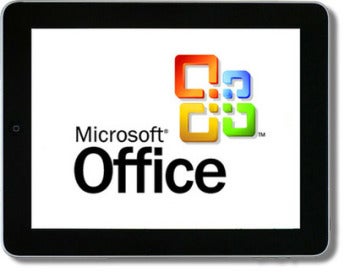On Monday, when Microsoft is expected to unwrap the next version of Office at a press event headlined by CEO Steve Ballmer, it will become clearer whether the company is propelling the suite forward for continued success or setting it up for failure. (Follow PCWorld's live coverage here.)
The impact of the latter on Microsoft as a whole would be catastrophic, since the ubiquitous suite of productivity applications is one the biggest profit engines for the company.
Microsoft's To-Do List
To beat back competitors like Google Apps, Office must evolve into an easier to use, tablet- and smartphone-friendly product, and one that doesn't penalize customers who access it via the cloud with big feature gaps and complicated setups.These aren't easy moves for Microsoft, in part because they risk affecting the sales and margins of what has been a cash cow product.
However, Microsoft has indicated that it intends to be bold with this new version of the suite, which will be called Office 2013, according to people familiar with the plans.
"In the last version of Office, Microsoft swapped the gas pedal and the break pedal," said analyst Rebecca Wettemann of Nucleus Research.
It now has an opportunity to organize the suite's myriad functions in the user interface in a way that is friendlier to users.
"For a long time, with each new version, Microsoft has focused on giving Office a gazillion new features, which helps with completeness but not usability," said Guy Creese, a Gartner analyst.
"Microsoft doesn't need to remove features, nor dumb down the product -- just don't assault users with all these features as it has historically done," he said.
Wanted: New Platform Support
Also critical and long overdue is a version of Office for Android and iOS smartphones and tablets.In particular, an Office version for the iPad can't wait, because the tablet has become a workplace tool for many people who bought it initially for personal use and ended up bringing it to the office as well. "Microsoft needs to do this," said industry analyst Michael Osterman, from Osterman Research.
 Osterman said he wouldn't be surprised if Microsoft continued to balk at
porting Office to iOS, especially now that it plans to release its own
tablet, called Surface, which will run its new Windows 8 operating
system with its new Metro interface designed for touch devices like
tablets. However, this would be a costly mistake, he said.
Osterman said he wouldn't be surprised if Microsoft continued to balk at
porting Office to iOS, especially now that it plans to release its own
tablet, called Surface, which will run its new Windows 8 operating
system with its new Metro interface designed for touch devices like
tablets. However, this would be a costly mistake, he said.
The "bring your own device" (BYOD) trend is sweeping enterprises, and end users are clamoring for the ability to use products like Office and SharePoint from their mobile device of choice, Creese said.
"If Microsoft pooh-poohs that reality and says it'll only put Office on Windows 8 tablets, that means they just don't get it," Creese said.
How Microsoft optimizes its applications for the various mobile devices is a tall order that will involve re-thinking their purpose and use in smartphones, touch-only tablets and hybrid devices that have both touch screens and mice/keyboards.
It might mean offering some applications via mobile browsers that support HTML5, while delivering others as platform-specific apps.
"The form factor influences what you can and expect to do with the applications," said Philipp Karcher, a Forrester Research analyst.
Microsoft needs to be careful in this process, because a half-baked offer could harm the Office brand and fail to live up to the expectations people have for the suite, he said.
And Microsoft needs to figure that out quickly, because users want the option to employ the applications on a variety of devices today, Creese said.
"The 'Windows first' days, especially in mobile devices, are absolutely over," he said. "Microsoft may wish it otherwise, but that's not how people are working."
Karcher concurs. "There's no question that mobile devices are exploding in adoption and people want to see what is Microsoft's story for getting Office on those devices," he said.
Clean Up the Cloud
Another priority should be to beef up the features in Office 365, so users don't feel that to take advantage of the cloud model they have to compromise on functionality.Full parity between the on-premise versions of Office, Lync, SharePoint, and Exchange and their online counterparts may not be possible, but there is an opportunity to narrow the functionality gap that exists today, Osterman said.
"Microsoft should align both more closely," he said.
"I'm sure Microsoft will make the management of that deployment easier for IT," he said.
Ultimately, the question will be whether Office 2013 offers consumers and enterprises enough compelling reasons to expend the effort and money on upgrading.
"If they don't get this right and people skip this new version of Office, that's going to mean a lot of lost revenue for Microsoft," Osterman said.
Via PCWorld
No comments:
Post a Comment